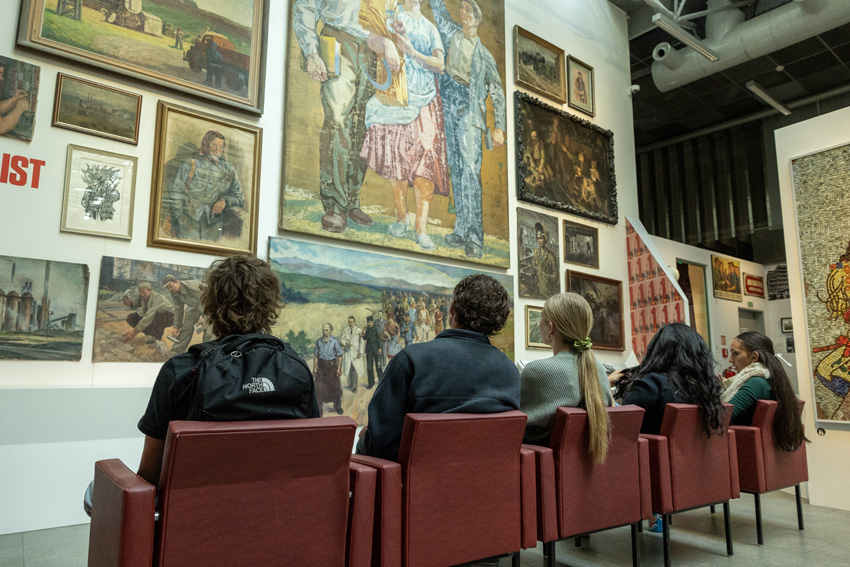Palms sweaty and hearts racing, parents everywhere brace for one of the most awkward moments of their lives. Thoughts jumble in their minds as they try and think of what to say and how to say it. Taking a deep breath, they begin speaking.
Parents are often nervous when it comes to talking to their children about sex. This sensitive topic can be hard to bring up, and some parents themselves feel inadequately informed.
Whatever the feelings of parents, however, the topic of teen sex is one that needs to be addressed as more and more teens experiment with risky sexual behavior.
A study conducted by Princeton Survey Research Associates (PSRA) International found that nearly 27% of 13 to 16 year-olds, or almost 3 in 10, are sexually active in some way. While sexual conduct is more widespread among 15 and 16 year-olds, (41%) a growing number of 13 and 14 year-olds are also active (14%).
MSNBC published these study findings on their website and believes that the rise in teen sex can be traced to the wealth of media sources that feature sexual content.
Rebecca Collins, a psychologist at RAND Corp., headed a study that asked 12-17 year olds about their TV viewing habits and sexual activity. Their study results supported the theory that teens are heavily influenced by what they watch.
?The impact of television viewing is so large,? Collins said, ?that even a moderate shift in the sexual content of adolescent TV watching could have a substantial effect on their sexual behavior.?
The results revealed that the bracket of 12 year olds who had been exposed to the most sexual content on TV behaved like the 14 or 15 year-old bracket who had watched the least.
The MSNBC survey also revealed that 51% of teens hear a lot about sex from the TV and movies they watch (www.msnbc.com).
This raises concern for parents who believe that teens should be hearing about sex from them, and not from the unrealistic portrayals of relationships presented by the media. Only 41% of the teens MSNBC surveyed say that they talk with their parents often about sex, while 62% discuss it regularly with their friends.
The Focus on the Family website has many resources available on how to talk with teens about sex. They understand the difficulties and have tried to simplify the process so that teens can learn from their parents and not their peers.
Another widely discussed issue is that of sex education in schools. The debate rages over whether students should be taught abstinence alone, or if they should also be given information about contraceptives.
Teens themselves seem to agree that some abstinence teaching might be a good thing. Family Research Council (FRC) conducted a study and discovered that 93% of teens surveyed believe that students should be given the message to abstain from sex until at least after high school. The MSNBC poll also found that 91%of teens believe it is not okay for young teens to have sex, and 78% also believe that older teens should abstain.
A recent campus poll learned that 71% of juniors and 64% of seniors regularly go on dates. When asked if they or their parents have set guidelines for dating, 60% of juniors said they had, compared with only 41% of seniors.
However, 75% of the seniors with guidelines admit that they have broken those rules at some point, while only 65% of juniors claim to have theirs. When asked if they have had sex, 13% of juniors replied that they have, while only seven percent of seniors say they have.
This suggests that even though the younger students are more inclined to set rules for their dating and less likely to break them, they may be more likely to go further when they do and actually have sex, while older students may push the boundaries, but not as far.
The senior results were more inconclusive, however, because nearly 14% declined to answer whether or not they have had sex.
A little parental involvement could go a long way in helping teens not have sex. MSNBC found that 65% of students who have not had sex abstained because they feared their parent?s reaction. FRC discovered that students who believed that their mothers disapproved of adolescent sex either abstained or had sex less frequently.
These statistics indicate that if parents take more time to educate their students about relationships, a change would be seen in the number of teen pregnancies and cases of sexually transmitted diseases.
For a complete list of PSRA survey results, visit www.msnbc.com.
For more results from Family Research Council, visit www.frc.org.
For resources to help talk with teens about sex, visit Focus on the Family at www.family.org.






